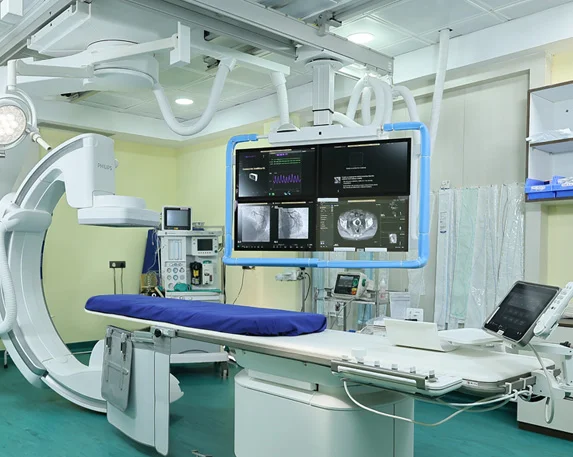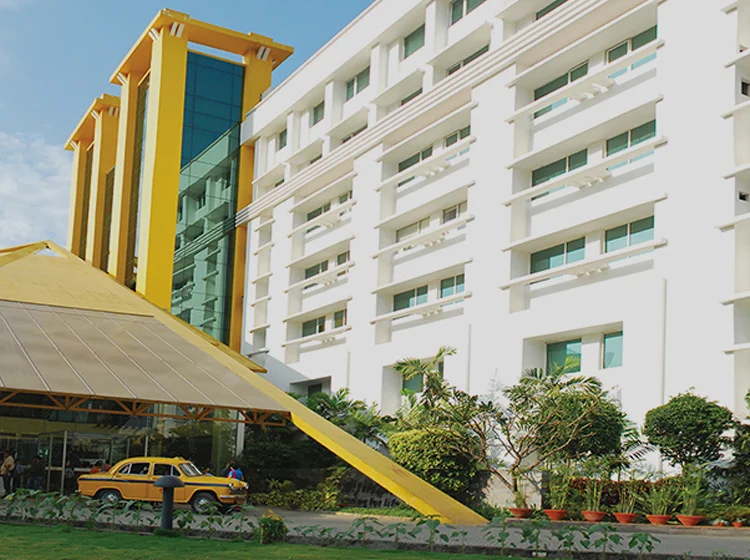What Does the Term “Cath Lab” Refer to?
The Radiologists at Medica Superspecialty Hospital are crucial in diagnosing and treating heart patients using minimally invasive methods. The Cath lab is tailored for diagnosing and treating diverse medical conditions. It is an essential area where our team carries out their vital work.
The Cath lab, short for Catheterization Laboratory, is a specialized unit within our hospital equipped with advanced imaging technology.
Our skilled interventional cardiologists utilize this equipment to visualize the heart’s arteries and chambers, enabling them to identify any narrowing or abnormalities present. By detecting such issues, we can promptly address them.
The Cath lab is equipped with advanced imaging technology that is tailored to examine the arteries and evaluate the circulation of blood to and from the heart. Medica’s medical team can diagnose and treat blockages and artery problems by using data from the Cath lab.




